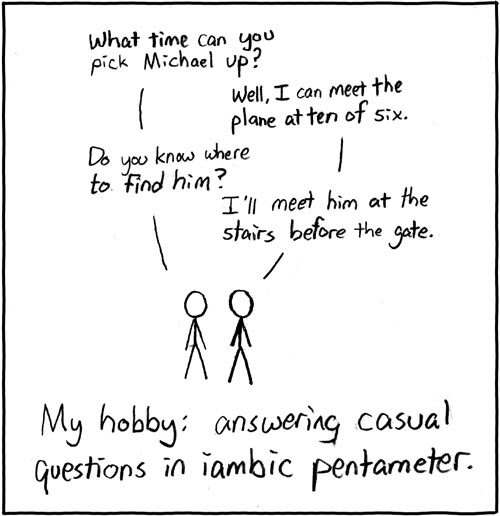I hate to say it, but I laughed a little when he unveiled the portrait. I'm not sure why. Anyway, this is a very interesting video that goes beyond the regular reading and adds visuals to help with understanding.
This poem involved quite a bit of research; not only because it was difficult to understand but also because it is based on a real man and his "last duchess."
It is said that the poem is based in Renaissance Italy, and the speaker is Alfonso II d'Este, the duke of Ferrara. The duke is speaking of his late wife (Lucrezia di Cosimo de' Medici); he suggests that she was disrespectful of him and would "offer her beautiful smile to everyone" (http://plays.about.com/od/robertbrowning/a/Analysis-Of-My-Last-Duchess_2.htm) instead of keeping her joy and beauty just for him. The duke's arrogance is evident in his speech as he explains what had happened to his audience. He feels that he is above most things, including communicating with his wife about his concerns ("Even had you skill, In speech...to make your will, Quite clear to such an one and say, 'Just this, Or that in you disgusts me'...E'en then would be stooping; and I choose, Never to stoop.") and even ending his wife's life ("I gave commands; Then all smiles stopped together"). He eventually gets the look he wanted all to himself, but preserved in a painting.
"My Last Duchess" is an example of a dramatic monologue.
'As a convention, each dramatic monologue should include:
- a fiction speaker/audience
- a symbolic setting
- talismanic props
- dramatic gestures
- an emphasis on speaker's subjectivity
- a focus on dramatics
- problematics of irony/non-irony
- involved reader's role-playing' --(http://classiclit.about.com/cs/articles/a/aa_mylastduches.htm)
- indirect characterization: the speaker characterizes himself with his monologue (arrogant, self-righteous, possessive, etc.)
- paradox: I visited one blog that suggested that the duke's love-hate relationship with his wife can be seen as a paradox...
- irony: ...however, this also seems to be the main irony of the story. Though he professes great love for his duchess, the duke also despises her
- symbol: as the duke moves on to the bronze cast of Neptune, it could be a symbol of his "taming" of his wife. Neptune is taming a seahorse, and the duke is also trying to bring his wife into submission ("Notice Neptune, though, Taming a sea-horse, thought a rarity, Which Claus of Innsbruck cast in bronze for me!")
- alliteration: "...She rode with round the terrace..." and "The dropping daylight in the west..."
Tone:
The tone of the poem is rather dark and sinister because of the jealousy, desire to control, and of course, the death, though it is disguised in a very lax, casual/conversational tone.

...These animations are just so great.
I just can't get rid of these bullet points, so we'll have to pretend they aren't here.
- Notice Neptune, though, Taming a sea-horse, thought a rarity, Which Claus of Innsbruck cast in bronze for me! - See more at: http://www.poets.org/viewmedia.php/prmMID/15701#sthash.y6CN6UM9.dpuf

No comments:
Post a Comment